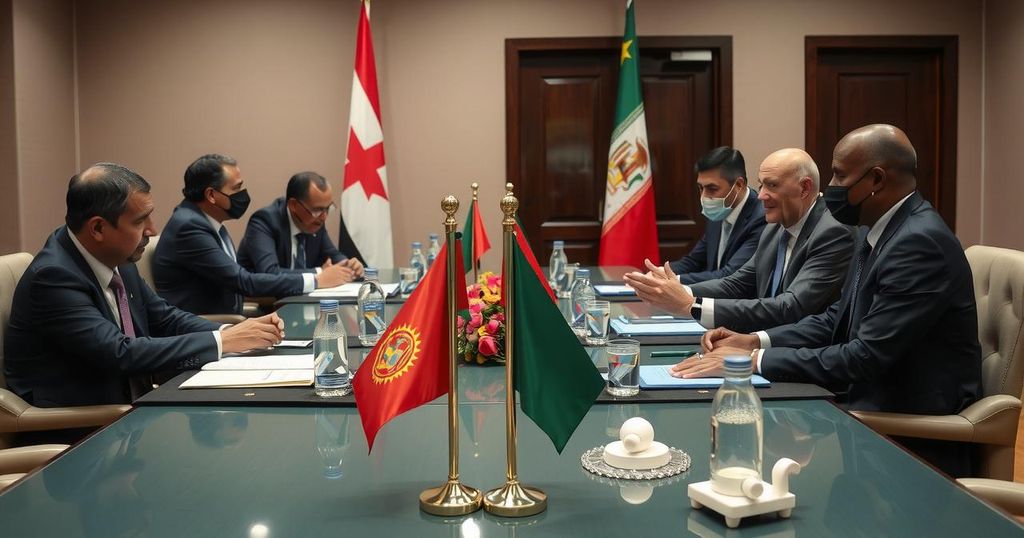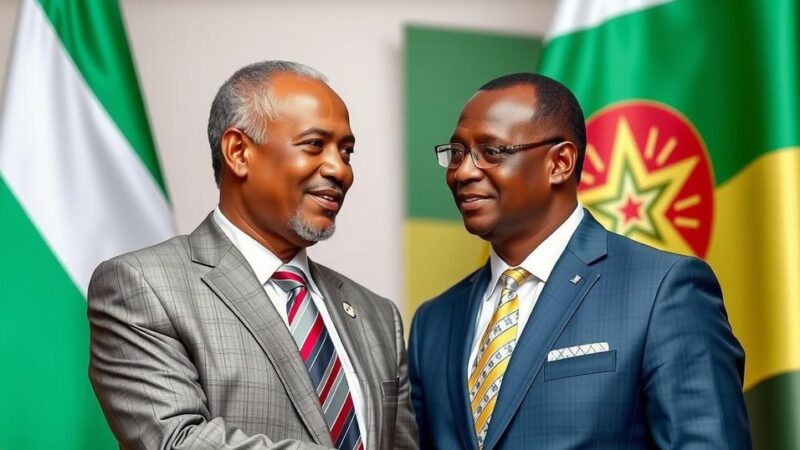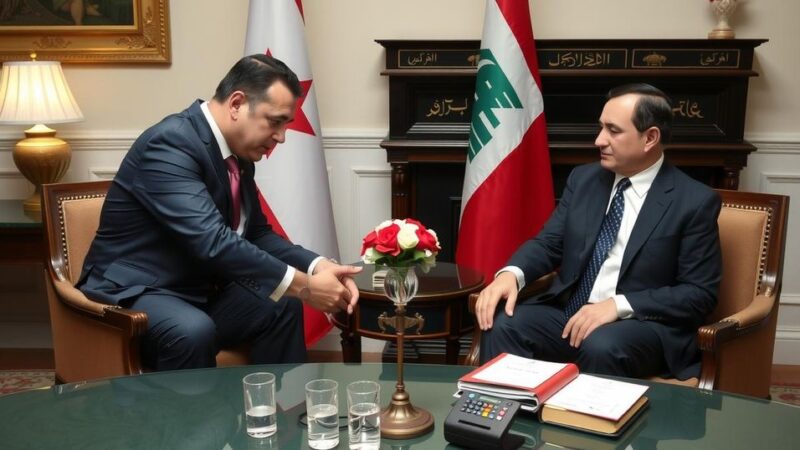Ethiopia is lobbying for the replacement of Somalia’s Foreign Minister Ahmed Fiqi, facing resistance from Egypt. President Hassan Sheikh Mohamud is on an official visit to Ethiopia, where ties have been formally restored. The absence of Fiqi from the delegation signals existing tensions and potential shifts in Somali foreign policy amid ongoing geopolitical competition in the region.
Tensions are rising as Ethiopia reportedly seeks the ousting of Somalia’s Foreign Minister, Ahmed Fiqi, a move encountering resistance from Egypt. This situation complicates the diplomatic efforts of Somalia, especially as President Hassan Sheikh Mohamud embarks on a visit to Ethiopia, which was met with a warm reception from Prime Minister Abiy Ahmed. Notably absent from President Hassan’s delegation is Minister Fiqi, who currently engages in discussions with Egyptian and Eritrean counterparts to fortify their trilateral alliance, perceived as a counterbalance to Ethiopia’s influence.
The diplomatic rift between Villa Somalia and the federal member states of Puntland and Jubaland appears to be exacerbated due to President Hassan Sheikh’s engagement with Ethiopia. Observers suggest that this effort aims to diminish the ties between Somalia’s central government and its member states that maintain close relations with Ethiopia. Given Ethiopia’s history of strategic partnerships with these regions, the situation remains precarious amid ongoing regional threats, including those posed by militant groups.
Egypt’s opposition to the potential removal of Foreign Minister Ahmed Fiqi illustrates the broader geopolitical dynamics at play. As Cairo bolsters its connections through the trilateral alliance with Somalia and Eritrea, it seeks to counter Ethiopia’s assertive posture in the region. Historical precedents indicate that Somali officials have previously faced dismissal for perceived allegiances that favour Egyptian interests, raising concerns regarding Minister Fiqi’s position.
President Hassan Sheikh’s administration is facing growing criticism regarding a foreign policy perceived as lacking coherence and driven by personal rather than national interests. This inconsistency risks further exposure to external influences, complicating Somalia’s recovery from decades of turmoil. The overlapping interests of Ethiopia and Egypt within Somalia highlight the broader geopolitical rivalries that continue to shape the Horn of Africa.
The longstanding geopolitical tensions within the Horn of Africa are primarily influenced by the historical relationships between Somalia, Ethiopia, and Egypt. Ethiopia has traditionally maintained a strong security partnership with Somalia’s federal member states, particularly Puntland and Jubaland. Conversely, Egypt has sought to establish itself as a counterweight to Ethiopian dominance in the region, forging alliances with Somalia and Eritrea. The complexities of this regional interplay have significant implications for Somalia’s internal politics and foreign relations, particularly amid ongoing conflicts and the necessity for a unified national strategy.
In conclusion, the diplomatic landscape surrounding Somalia’s foreign ministerial position remains tenuous, characterized by Ethiopia’s efforts to influence Somalia’s internal politics amid resistance from Egypt. The tensions reflect deeper geopolitical rivalries in the Horn of Africa, revealing the fragility of Somalia’s political climate as it navigates external interests. Criticism of President Hassan Sheikh’s foreign policy approach underscores the broader implications of these dynamics for Somalia’s sovereignty and recovery efforts.
Original Source: www.garoweonline.com






